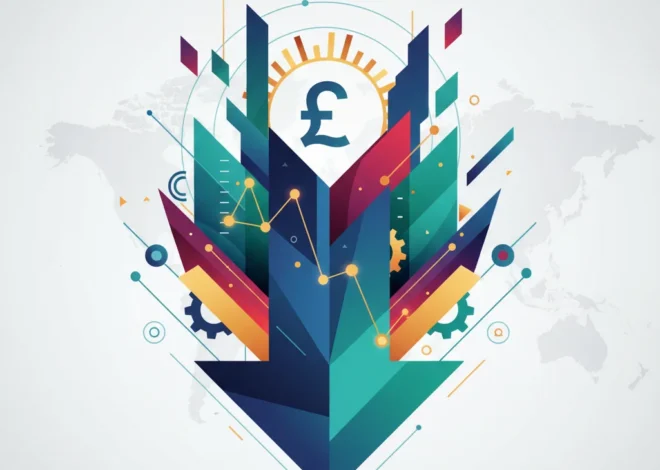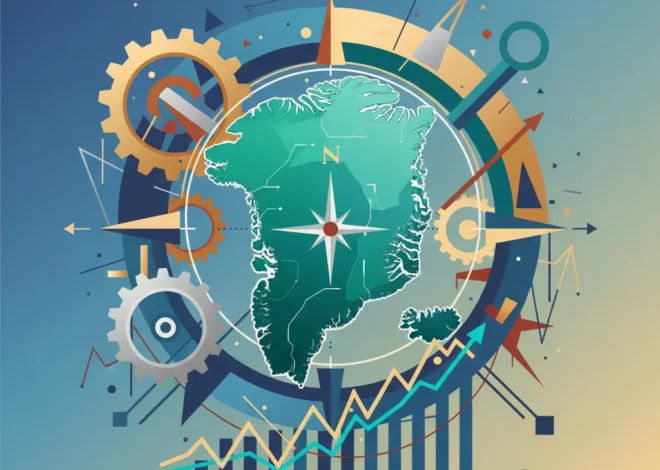
Blackstone’s Billion-Dollar AI Warning: Is Wall Street Asleep at the Wheel?
Imagine you’re standing on a beach, and you hear a distant rumble. Some people glance at the horizon and go back to their conversations. Others, the seasoned sailors and geologists, recognize the sound for what it is: the precursor to a tsunami. Right now, in the world of finance and technology, a similar rumble is happening. It’s called artificial intelligence, and one of the world’s biggest financial titans is sounding the alarm, claiming most of Wall Street is still just sunbathing.
Jonathan Gray, the president of Blackstone—a private equity firm managing over a trillion dollars in assets—recently made a stark declaration. He said his firm has put the risks and opportunities from AI “top of our list” when evaluating any new deal. In a candid interview with the Financial Times, he warned that the broader financial world is dangerously “complacent” about the impending disruption from AI, comparing it to a “tectonic plate shift” that will create a new landscape of corporate winners and losers.
This isn’t just another tech trend or a buzzword to sprinkle into pitch decks. When a firm that has built its empire on meticulously calculating risk and reward says the entire rulebook is being rewritten, it’s time for everyone—from startup founders and developers to established entrepreneurs and investors—to listen very, very closely.
The Anatomy of Complacency: Why Wall Street Might Be Missing the Point
Why would an industry built on predictive analysis be slow to react? The answer lies in the nature of this technological shift. Previous waves of innovation, like the internet or mobile, were disruptive but followed a somewhat predictable path. You built a website, you developed an app. The impact, while huge, was focused on distribution, communication, and access.
Artificial intelligence, particularly generative AI, is different. It’s not just changing the channel; it’s changing the very content of the broadcast. It targets the core of knowledge work, the engine room of the modern economy. It’s about cognition, creation, and problem-solving—tasks previously reserved for the highly-paid, white-collar workforce.
Gray’s warning suggests that traditional investment models are ill-equipped to price this kind of fundamental change. Analysts are great at forecasting next quarter’s earnings, but how do you model a future where a company’s entire software development team is 50% more productive, or where its core product can be replicated by a sophisticated algorithm? The old metrics are failing, and this is where the complacency creeps in.
Blackstone’s New Playbook: AI as the Ultimate Litmus Test
For Blackstone, the theoretical has become practical. The firm’s investment thesis has fundamentally evolved. It’s no longer enough for a company to have strong cash flow and a solid market position. The new, critical question is: “What is your AI strategy?”
According to Gray, every potential investment is now viewed through a dual AI lens:
- Is the company an AI enabler? These are the “picks and shovels” businesses building the foundational tools of the AI revolution. Think cloud infrastructure providers, specialized software and SaaS platforms, cybersecurity firms protecting AI models, and companies creating novel applications of machine learning.
- Is the company a savvy AI adopter? This is arguably the bigger category. It includes businesses in any industry—from healthcare to manufacturing—that are using AI to create an insurmountable competitive advantage. As Gray put it, they are looking for companies that are “early and effective adopters of this technology.” (source)
This shift transforms due diligence from a financial audit into a technological and strategic one. The table below illustrates how the evaluation criteria are changing.
| Traditional Evaluation Criteria | Modern AI-Aware Criteria |
|---|---|
| Historical Revenue Growth & Profit Margins | Data Strategy & Quality of Proprietary Datasets |
| Market Share & Brand Recognition | Pace of AI Adoption & Integration into Core Workflows |
| Operational Efficiency & Headcount | Level of Automation & AI-Driven Productivity Gains |
| Strength of Management Team | AI Literacy of Leadership & In-House Tech Talent |
| Static Competitive Moat (e.g., patents, network effects) | Dynamic Competitive Moat (e.g., ability to innovate with AI, speed of learning) |
This new playbook means that a legacy company with stable profits but no coherent AI strategy might now be seen as a riskier bet than an agile startup that’s embedding AI into its DNA, even if its current balance sheet is less impressive.
Training Your Replacement: How AI Is Forcing Professionals to Automate Their Own Jobs
The real challenge for investors and entrepreneurs isn’t just *using* AI, but building a durable competitive “moat” with it. If your AI advantage is based solely on a third-party API like OpenAI’s, how defensible is that when your competitor can access the same tool? The companies that will truly win are those using AI to unlock value from their unique, proprietary data or to fundamentally re-engineer business processes in a way that can’t be easily copied. Blackstone’s focus on this deeper integration is a sign of mature, long-term thinking that cuts through the short-term speculative fever. It’s a shift from “Are you using AI?” to “How is AI making you fundamentally better and harder to compete with?”
From Theory to Reality: Where AI is Already Redrawing the Map
This isn’t a future-gazing exercise. The disruption Blackstone is bracing for is already happening across its portfolio and the wider market. The FT article highlights a few key areas where innovation is accelerating dramatically:
- Drug Discovery: Pharmaceutical research, once a decade-long slog of trial and error, is being supercharged. Machine learning models can now analyze molecular structures and predict drug efficacy in a fraction of the time, dramatically lowering the cost and time-to-market for new medicines.
- Software Development: For developers and tech professionals, the change is personal. AI-powered tools for programming, like GitHub Copilot, are not just auto-completing code; they’re acting as junior programming partners. This boosts productivity, reduces bugs, and allows developers to focus on higher-level architectural challenges. The efficiency gains here are staggering, with some reports suggesting productivity increases of over 55% for certain tasks. (source)
- Customer Service: The clunky, frustrating chatbot is dead. Modern AI-powered agents can handle complex queries, understand nuance, and provide genuinely helpful support, freeing up human agents for the most critical issues. This isn’t just about cost-cutting; it’s about creating a better customer experience through intelligent automation.
These examples are just the tip of the iceberg. In every sector, from logistics and manufacturing to legal services and creative design, AI is carving out new efficiencies and creating opportunities for nimble players to outmaneuver slow-moving incumbents.
Order in the Code: How AI is Rewriting the Rules of the Legal World
The Human Element: A Warning for White-Collar Work
With great disruption comes great change, and Gray doesn’t shy away from the human cost. He explicitly points to the potential for “white-collar” job displacement as AI-driven automation takes over routine analytical and administrative tasks. This is a crucial point for everyone in the knowledge economy.
However, the narrative isn’t simply one of replacement. It’s one of evolution. The skills that will be most valuable in the coming decade are not the ones that can be automated. They are skills like:
- Strategic Thinking: Defining the problems for AI to solve.
- Creativity & Innovation: Using AI as a tool to explore new ideas.
- AI Oversight & Ethics: Ensuring AI systems are used responsibly and effectively.
- Complex Communication: Translating AI insights into human action and strategy.
For entrepreneurs and startups, this presents a massive opportunity. By building organizations that leverage AI to augment human talent, rather than just replace it, they can create leaner, more innovative, and more powerful businesses than ever before.
Walking the Talk: How Blackstone Uses Its Own Medicine
To underscore the seriousness of its conviction, Blackstone is not just preaching the AI gospel—it’s living it. The firm is actively deploying artificial intelligence and data science within its own operations. While the specifics are proprietary, one can imagine the applications:
- Analyzing vast market datasets to spot investment trends before they become obvious.
- Streamlining the due diligence process by using AI to scan thousands of documents for risks and opportunities.
- Optimizing the performance of its 400+ portfolio companies by providing them with AI tools and expertise.
- Enhancing its own cybersecurity defenses against increasingly sophisticated AI-powered threats.
This internal adoption is the ultimate proof of their belief. They see AI not as a product to be sold, but as a fundamental utility—like electricity or the internet—that must be woven into the fabric of every successful modern enterprise.
From Code to Clinic: The Real-World Challenge of Deploying AI in Hospitals
The Final Call: Adapt or Be Disrupted
Jonathan Gray’s message is less of a prediction and more of a weather report from the front lines of global capital. The storm is here. The “tectonic plates” of the global economy are shifting, and the resulting earthquake will reshape industries for decades to come.
For Wall Street, this is a wake-up call to move beyond legacy valuation models and embrace a new paradigm of technological assessment. For developers and tech professionals, it’s a validation that your skills in software, cloud computing, and machine learning are the most valuable assets in the new economy. And for entrepreneurs, it is a clear signal: the greatest opportunities of our lifetime lie in harnessing this incredible wave of innovation.
Complacency is no longer an option. The question every business leader, investor, and builder must ask themselves is not *if* AI will affect them, but how quickly they can adapt to become one of the winners. As Blackstone has made clear, the clock is ticking.


